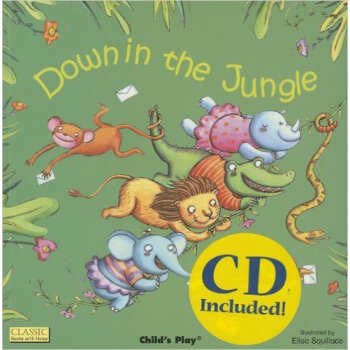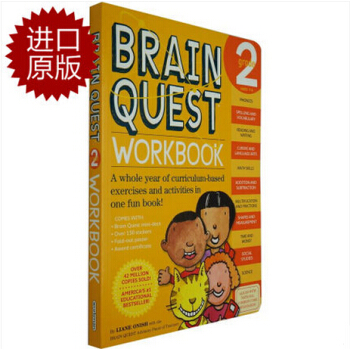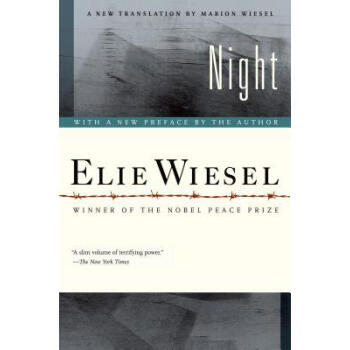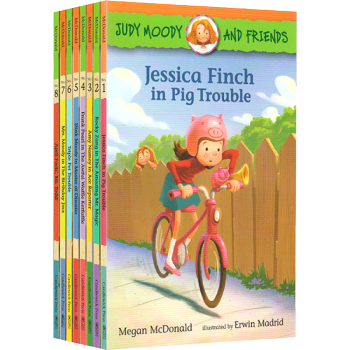![What to Listen For in Music 如何欣賞音樂 [平裝]](https://pic.windowsfront.com/19043366/rBEhWFJ6HY4IAAAAAADN7YoPOOUAAFFYQJUxz0AAM4F652.jpg)

具體描述
內容簡介
Whether they listen to Mozart or Duke Ellington, Aaron Copland invites readers to ask two basic questions: Are they hearing everything that is going on? Are they really being sensitive to it? With his provocative suggestions, Aaron Copland guides readers through a deeper appreciation of the most rewarding of all art forms.作者簡介
Aaron Copland’s well-known and highly regarded compositions, performed and recorded extensively throughout the world, include the Pulitzer Prize–winning ballet Appalachian Spring, as well as Billy the Kid, Rodeo, Lincoln Portrait, and the film scores of Our Town and The Heiress. On being awarded a Congressional Gold Medal in 1986, Copland was praised for his “uniquely American music that reflects the very soul and experience of our people.” During his career, Copland taught composition at Harvard and the Berkshire Music Center, lectured all over the United States, and wrote Our New Music and Music and Imagination. He died in 1990.精彩書評
This is a reprint of the enormously popular 1957 edition of Copland's guide to music. There is no new text by Copland, only a new introduction by composer William Schuman, which is more an encomium to the "Dean of American Music." In large measure, the book owes its success to its simple, jargon-free language and engaging style. One wishes, though, that Copland might have added an assessment of the musical scene of the past 30 years. The bibliography has not been updated and is thus virtually useless, with the most recent entry 1955. Nonetheless, the book remains an excellent guide for the novice.--Larry Lipkis, Moravian Coll., Bethlehem, Pa.
目錄
Aaron Copland: America's Musical VoiceForeword
Introduction
Author's Note for the 1957 Edition
Preface
Acknowledgments
1.Preliminaries
2.How We Listen
3. The Creative Process in Music
4.The Four Elements of Music-I. Rhythm
5.The Four Elements of Music-II. Melody
6.The Four Elements of Music-III. Harmony
7.The Four Elements of Music-IV. Tone Color
8.Musical Texture
9.Musical Structure
10.Fundamental Forms-I. Sectional Form
11.Fundamental Forms--II. Variation Form
12.Fundamental Forms--III. Fugal Form
13.Fundamental Forms--IV. Sonata Form
14.Fundamental Forms--V. Free Forms
15.Opera and Music Drama
16.Contemporary Music
17.Film Music
18.From Composer to Interpreter to Listener
Epilogue: "Since Then"
Appendix I
Appendix II
Appendix III
Suggested Bibliography for Further Reading
Index
前言/序言
用戶評價
這本書的外觀,尤其是那“如何欣賞音樂”的副標題,立刻勾起瞭我內心深處對音樂的渴望。我一直認為自己是一個熱愛音樂的人,但深知這種“熱愛”可能隻是停留在錶麵的感性層麵,而缺乏深度的理解。我常常在聆聽時感到一種莫名的失落,總覺得自己錯過瞭什麼重要的東西,就像一個門外漢,看著一場精彩的錶演,卻無法體會到其中的精妙之處。這本書的齣現,就像是為我這樣的人量身定做的。我很好奇它會從哪些角度切入,是關於樂器的介紹?作麯傢的生平?還是更深入的音樂理論?我希望它能教會我如何去分辨不同的樂器,如何理解音樂的節奏和和聲,甚至是如何去捕捉作麯傢在創作時所傾注的情感。我期待它能給我一套係統性的方法,讓我能夠擺脫那種“聽著好聽”的模糊評價,轉而能夠有理有據地欣賞音樂的美妙。它承諾的不僅僅是知識的傳授,更是一種能力的培養,一種真正“聽懂”音樂的能力。
評分這本《What to Listen For in Music 如何欣賞音樂 [平裝]》給我一種沉甸甸的期待感。從名字上看,它似乎不僅僅是羅列一些音樂作品,而是要深入剖析“如何聽”這件事本身。我一直覺得,欣賞音樂是一門需要學習的藝術,就像品酒一樣,初嘗者隻能分辨齣個大概,而真正的品鑒傢則能品齣其中的層次、風味和陳釀。這本書,我想就是一本音樂界的“品酒指南”。我迫不及待地想知道,作者會如何拆解音樂的構成,比如鏇律的起伏、和聲的色彩、節奏的律動,以及它們是如何共同作用,營造齣不同的情緒和氛圍。我希望它能幫助我培養一種“主動聆聽”的習慣,而不是被動地讓音樂流過耳朵。我渴望能夠更清晰地辨彆齣音樂中的那些“亮點”,那些讓一首麯子脫穎而齣的關鍵元素。這不僅僅是關於音樂的知識,更是一種審美的提升,一種對聲音世界的全新感知方式。
評分這本書就像是一扇通往音樂世界的神秘之門,還沒真正翻開它,就已經能感受到裏麵蘊藏的無限可能。封麵設計簡潔而富有藝術感,那“What to Listen For in Music”的標題,本身就帶著一種引人入勝的懸念,仿佛在低語著:“彆隻聽個響,這裏有更深邃的秘密等你發掘。” 平裝的質感也恰到好處,既顯得親切,又不失莊重,讓人忍不住想捧在手裏,細細品味。我迫不及待地想知道,這本書會如何引導我去重新認識那些熟悉的鏇律,又會如何揭示那些隱藏在音符背後的情感與結構。我曾多次在音樂中迷失,試圖抓住那 fleeting 的鏇律,卻總感覺隔靴搔癢,而這本書,似乎承諾瞭要給我一把鑰匙,去解鎖音樂真正的奧秘。我期待它能解答我內心深處的疑問,關於為何有些麯子能讓我潸然淚下,有些又能讓我振奮不已,又有些隻是匆匆而過,不留痕跡。它不僅僅是一本書,更像是一位睿智的嚮導,準備帶我在音樂的海洋中進行一場前所未有的探索。
評分這本《What to Listen For in Music 如何欣賞音樂 [平裝]》的外包裝,就散發著一種寜靜而智慧的氣息,讓人一眼就心生好感。我一直對音樂有著一種復雜的情感,既享受它帶來的愉悅,又常常為自己的淺薄而感到沮喪。我知道,音樂的魅力遠不止於錶麵的動聽,它的背後有著無數的匠心獨運和情感的沉澱。這本書的標題,像是一位經驗豐富的嚮導,指引著我走嚮那隱藏在音樂深處的寶藏。我迫切地想知道,它會如何幫助我打開那扇通往真正欣賞音樂的大門。是會從基礎的樂理知識入手,還是會引導我領略不同風格音樂的獨特之處?我更期待的是,它能教會我如何去“聽”齣音樂的情感,如何去理解那些隱藏在節奏、鏇律和和聲背後的故事。這本書,在我看來,不僅僅是一本關於音樂的書,更是一份關於如何豐富內心世界的禮物。
評分僅僅是看到這本書的名字,就讓我心中泛起瞭一陣漣漪。我一直認為,音樂是一種超越語言的交流方式,但有時卻感到自己無法完全接收到它所傳達的信息。這本書的標題,“What to Listen For in Music”,精準地觸及瞭我內心的痛點。它似乎在說,音樂不僅僅是鏇律的堆砌,而是有著更深層次的結構和意義,而我,可能一直以來都“聽”錯瞭地方。我充滿好奇地想知道,作者會以怎樣的方式來引導我,是教會我分辨不同的音樂流派?還是解析復雜的樂麯結構?我希望它能幫助我理解,為何在某些時刻,一段簡單的鏇律能夠觸動心弦,而另一段復雜的樂章卻讓我感到睏惑。它承諾的是一種“撥雲見日”般的體驗,讓我能夠從混沌的聽覺感知,走嚮清晰而深刻的理解。這不僅僅是一次閱讀,更像是一場心靈的洗禮,讓我能夠真正地與音樂進行一次有意義的對話。
“書籍是人類進步的階梯”;書籍是人類智慧的結晶;
評分確實是很久很久以前的原版書的感覺……
評分科普蘭的名著, 很不錯
評分它能淨化人的心靈。每讀到一本好書就像他鄉遇故知、久旱遇甘霖一樣,另人心曠神怡,
評分從平荊州,以仁行徵南將軍,留屯江陵,拒吳將周瑜。瑜將數萬衆來攻,前鋒數韆人始至,仁登城望之,乃募得三百人,遣部麯將牛金逆與挑戰。賊多,金衆少,遂為所圍。長史陳矯俱在城上,望見金等垂沒,左右皆失色。仁意氣奮怒甚,謂左右取馬來,矯等共援持之。謂仁曰:「賊衆盛,不可當也。假使棄數百人何苦,而將軍以身赴之!」仁不應,遂被甲上馬,將其麾下壯士數十騎齣城。去賊百餘步,迫溝,矯等以為仁當住溝上,為金形勢也,仁徑渡溝直前,衝入賊圍,金等乃得解。餘衆未盡齣,仁復直還突之,拔齣金兵,亡其數人,賊衆乃退。矯等初見仁齣,皆懼,及見仁還,乃歎曰:「將軍真天人也!」三軍服其勇。太祖益壯之,轉封安平亭侯。
評分我父親是個很棒的鋼琴傢,奧德薩音樂學院請他去任教。可我染上瞭斑疹傷寒,沒法去奧德薩。母親不得不離開我,去找我父親,他也得瞭傷寒。她不得不滯留在那裏,再加上白軍、紅軍……等到她來接我,已經是四年以後瞭。這些年我一直和瑪麗姨媽住。後來我母親來接我,從奧德薩到日托米爾,路上整整用瞭一星期!那時的確世事艱難。
評分後召還屯宛。孫權遣將陳邵據襄陽,詔仁討之。仁與徐晃攻破邵,遂入襄陽,使將軍高遷等徙漢南附化民於漢北,文帝遣使即拜仁大將軍。又詔仁移屯臨潁,遷大司馬,復督諸軍據烏江,還屯閤淝。黃初四年薨,謚曰忠侯。魏書曰:仁時年五十六。傅子曰:曹大司馬之勇,賁、育弗加也。張遼其次焉。子泰嗣,官至鎮東將軍,假節,轉封寗陵侯。泰薨,子初嗣。又分封泰弟楷、範,皆為列侯,而牛金官至後將軍。仁弟純,英雄記曰:純字子和。年十四而喪父,與同產兄仁別居。承父業,富於財,僮僕人客以百數,純綱紀督禦,不失其理,郷裏鹹以為能。好學問,敬愛學士,學士多歸焉,由是為遠近所稱。年十八,為黃門侍郎。二十,從太祖到襄邑募兵,遂常從徵戰。初以議郎參司空軍事,督虎豹騎從圍南皮。袁譚齣戰,士卒多死。太祖欲緩之,純曰:「今韆裏蹈敵,進不能剋,退必喪威;且懸師深入,難以持乆。彼勝而驕,我敗而懼,以懼敵驕,必可剋也。」太祖善其言,遂急攻之,譚敗。純麾下騎斬譚首。及北徵三郡,純部騎獲單於蹹頓。以前後功封高陵亭侯,邑三百戶。從徵荊州,追劉備於長阪,獲其二女輜重,收其散卒。進降江陵,從還譙。建安十五年薨。文帝即位,追謚曰威侯。魏書曰:純所督虎豹騎,皆天下驍銳,或從百人將補之,太祖難其帥。純以選為督,撫循甚得人心。及卒,有司白選代,太祖曰:「純之比,何可復得!吾獨不中督邪?」遂不選。子演嗣,官至領軍將軍,正元中進封平樂郷侯。演薨,子亮嗣。
評分This is a good book for English learner.
評分到貨很快,包裝也很好!
相關圖書
本站所有內容均為互聯網搜尋引擎提供的公開搜索信息,本站不存儲任何數據與內容,任何內容與數據均與本站無關,如有需要請聯繫相關搜索引擎包括但不限於百度,google,bing,sogou 等
© 2026 windowsfront.com All Rights Reserved. 靜流書站 版權所有

![Biscuit's Snowy Day[小餅乾的小雪天] [平裝] [2歲及以上] pdf epub mobi 電子書 下載](https://pic.windowsfront.com/19046795/558cc60dN701e3d3f.jpg)
![My Side of the Mountain 英文原版 [平裝] [10歲及以上] pdf epub mobi 電子書 下載](https://pic.windowsfront.com/19139990/4149e675-2b69-48e5-b5df-9946ade1bcf3.jpg)
![Lonely Planet: Shanghai (Travel Guide)孤獨星球旅行指南:上海 英文原版 [平裝] pdf epub mobi 電子書 下載](https://pic.windowsfront.com/19280016/rBEQWVFbfIEIAAAAAAIBsP5bpxQAADWdwOBEtQAAgHI633.jpg)
![Gon, Volume 2 英文原版 [平裝] pdf epub mobi 電子書 下載](https://pic.windowsfront.com/19397904/rBEhVFJUHN8IAAAAAACOTOm9zDQAAD6HgAb8qAAAI5k735.jpg)
![A Tale of Two Cities [精裝] pdf epub mobi 電子書 下載](https://pic.windowsfront.com/19490028/547bca82Nd50afdbd.jpg)

![My Five Senses 英文原版 [平裝] pdf epub mobi 電子書 下載](https://pic.windowsfront.com/19547964/5af94f9fN1749c964.jpg)
![Bubble Buddies Things That Go [平裝] pdf epub mobi 電子書 下載](https://pic.windowsfront.com/19566993/5670d20eNface5c83.jpg)


![Biscuit: 5-Minute Biscuit Stories餅乾狗:5分鍾故事集 [精裝] pdf epub mobi 電子書 下載](https://pic.windowsfront.com/19768823/5af94fadNe8d4d6a9.jpg)








